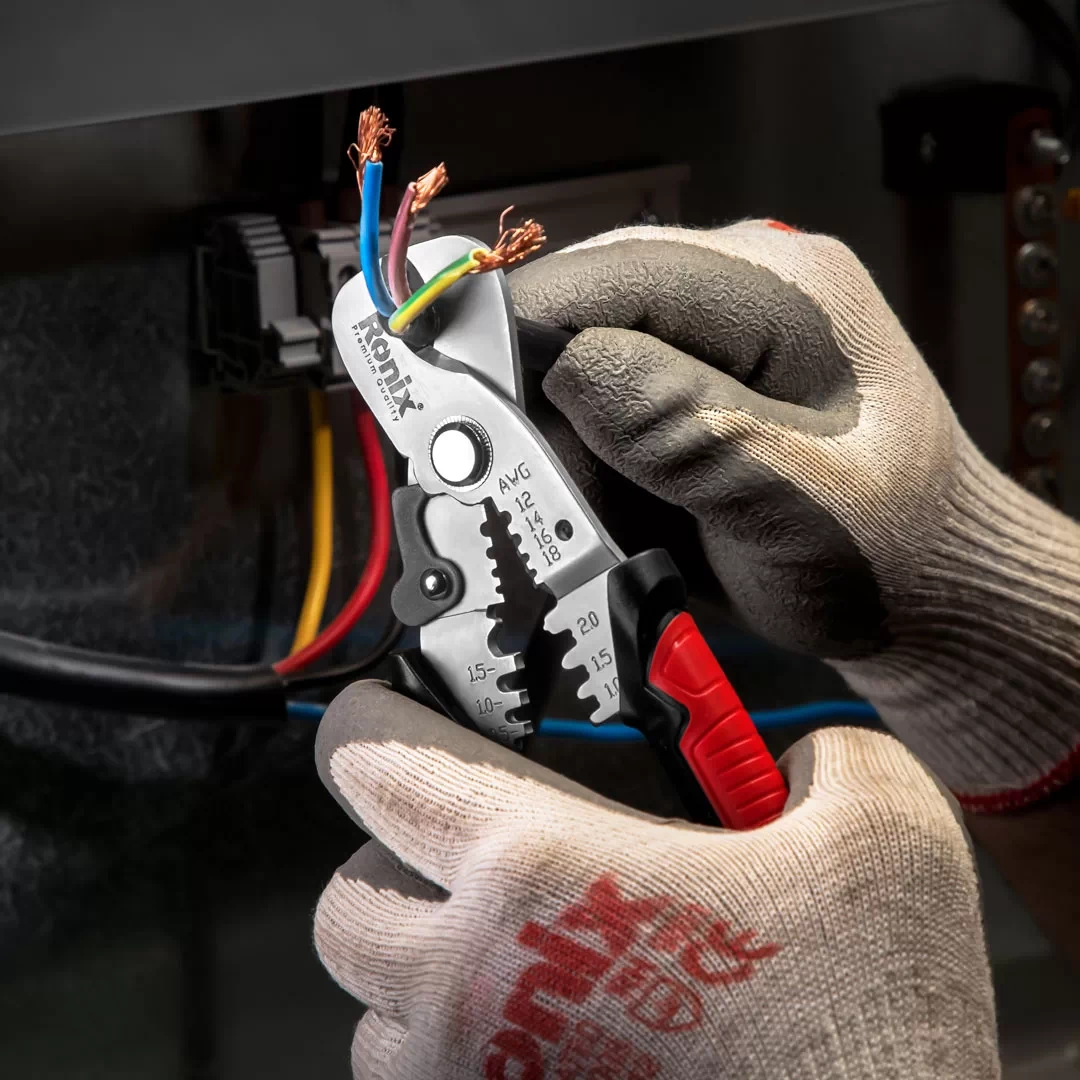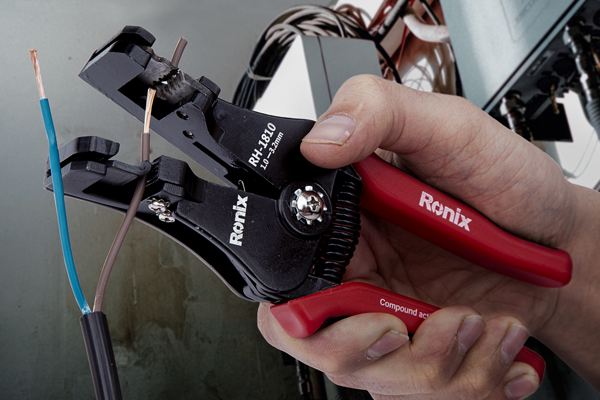Exploring the Numerous Sorts Of Armoured Cord and Their Applications
Armoured cables are essential elements across different industries, supplying security and integrity. Different types, consisting of Steel Cable Armoured (SWA) and Aluminium armoured cable televisions, accommodate specific requirements based upon setting and application. Insulation products like PVC and XLPE further boost their performance. Recognizing these differences is vital for choosing the right cord. The ramifications of these choices can greatly affect functional performance and safety in diverse sectors. What aspects should one think about when making such choices?
Introduction of Armoured Wire Kind

The PVC armoured cable television is frequently used in outside atmospheres due to its resistance to moisture and chemicals. The XLPE armoured cable, with cross-linked polyethylene insulation, is recognized for its high thermal stability and electric efficiency, making it ideal for commercial settings. Another type is the AWA (Aluminum Cable Armoured) cable television, often used in below ground setups where light-weight homes are advantageous. Understanding the numerous armoured cord types enables specialists to select one of the most suitable alternative for their details requirements, guaranteeing security and reliability in electric systems.
Steel Cord Armoured (SWA) Wire
Steel Cord Armoured (SWA) cord is a durable remedy designed to hold up against extreme ecological conditions and mechanical tension. This kind of wire features a layer of steel wire that supplies substantial protection against impact, moisture, and chemical exposure, making it excellent for outside and industrial applications - swa cable. The building normally contains a copper or aluminium conductor, shielded with PVC or XLPE, and surrounded by a steel wire armour layer
SWA wires are commonly used in power circulation networks, where their sturdiness guarantees reputable service in challenging setups. They are often utilized in below ground setups, construction sites, and locations where wires may be subjected to physical damages. Furthermore, SWA wires support both high and low voltage applications, boosting their flexibility. Their capability to resist corrosion and mechanical wear makes them a recommended option for several engineers and professionals when picking cord remedies for requiring settings.
Aluminium Armoured Wire
Aluminium armoured cord offers a light-weight yet sturdy choice to traditional steel cable armoured cables, making it appropriate for numerous applications. This type of wire is commonly used in commercial and business settings, where versatility and ease of installment are paramount. Its reduced weight assists in handling, decreasing the labor costs connected with installation.
Aluminium armoured cables are specifically beneficial in atmospheres that require security against mechanical damages, dampness, and chemical direct exposure. They are usually used in power circulation, underground installments, and external applications, showcasing their flexibility. Additionally, the corrosion resistance of aluminium improves the durability of the cable in extreme problems.
Making use of aluminium also adds this content to cost-effectiveness, as it is typically much less pricey than steel. swa cable. On the whole, aluminium armoured wire represents a sensible choice for demanding electric systems, integrating performance, protection, and financial advantages
PVC vs. XLPE Shielded Armoured Cables
When comparing shielded armoured cable televisions, PVC (Polyvinyl Chloride) and XLPE (Cross-Linked Polyethylene) stand out as two utilized products, each offering unique benefits for particular applications. PVC is understood for its excellent mechanical homes and cost-effectiveness, making it a prominent choice for general-purpose electrical wiring. It offers good insulation and resistance to chemicals, though it may have restrictions in temperature resistance and versatility. On the other hand, XLPE flaunts superior thermal resistance and is appropriate for higher temperature level atmospheres, making it suitable for applications requiring high efficiency and toughness. XLPE insulation additionally improves electric buildings, offering lower dielectric loss and enhanced power performance. While PVC cords are frequently made use of in this article industrial and residential installments, XLPE wires are preferred in industrial and utility settings where toughness and integrity are paramount. Eventually, the selection between PVC and XLPE depends on the certain requirements of the setup environment and the wanted performance qualities.
Applications of Armoured Cables in Numerous Industries
Armoured cords, with their robust building and safety features, discover comprehensive use throughout different industries. In the building field, they supply reputable electrical links in rough atmospheres, guaranteeing security and sturdiness. The telecommunications industry utilizes armoured cables to protect information transmission lines from physical damages, specifically in outside installments. In mining and quarrying, these cords are essential for powering heavy equipment and equipment, where exposure to harsh problems prevails. Additionally, the oil and gas field utilizes armoured cords to preserve operational honesty in tough settings, including overseas platforms. The renewable energy industry also benefits, as these cables are significant for wind and solar farms, linking numerous components while enduring environmental stressors. Generally, armoured wires are crucial for ensuring nonstop service, protecting infrastructure, and improving functional efficiency throughout varied applications.

Regularly Asked Inquiries
Exactly how Do I Choose the Right Armoured Cable Television for My Job?
Selecting the ideal armoured cord involves evaluating job specs, including ecological problems, electrical lots needs, and installation place. Consulting sector standards and looking for specialist suggestions can also ensure proper choice for safety and effectiveness.
Can Armoured Cables Be Utilized Outdoors and Underground?
Armoured cords can certainly be made use of outdoors and underground. Their robust building secures versus ecological variables, moisture, and physical damages, making them suitable for numerous setups, consisting of those subjected to harsh weather conditions or underground atmospheres.
What Is the Lifespan of Armoured Cables?
Armoured wires normally have a life-span of 25 to three decades, depending on environmental conditions and installment methods. Appropriate maintenance and Home Page security from extreme problems can further enhance their durability and durability.

Are Armoured Cables Resistant to Chemical Exposure?
Armoured cable televisions exhibit varying degrees of resistance to chemical exposure, relying on their insulation materials. Usually, particular types hold up against chemicals better than others, making it necessary to select ideal wires for specific atmospheres and applications.
Just How Do Armoured Wires Handle Temperature Fluctuations?
Armoured cords are created to withstand temperature changes effectively. Their robust building and construction enables them to preserve performance and insulation integrity throughout differing temperatures, making them ideal for diverse environments and lowering the threat of damage.
Different kinds, consisting of Steel Wire Armoured (SWA) and Aluminium armoured wires, provide to details demands based on setting and application. Armoured wires are essential elements in various electrical installments, offering boosted defense versus mechanical damages and environmental factors. Aluminium armoured cable television provides a light-weight yet resilient choice to conventional steel wire armoured wires, making it ideal for various applications. When contrasting shielded armoured cords, PVC (Polyvinyl Chloride) and XLPE (Cross-Linked Polyethylene) stand out as two commonly used materials, each offering distinctive benefits for certain applications. While PVC wires are typically used in business and residential installments, XLPE wires are preferred in commercial and utility setups where toughness and integrity are paramount.